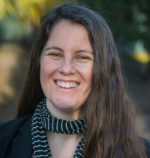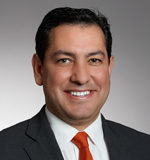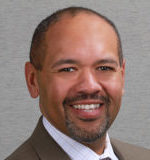Reforming the federal Experimental Sites initiative to better learn what works in higher ed: An interview with Amy Laitinen and Clare McCann, New America – Episode #162

 As the new report “Putting the Experiment Back in the Experimental Sites Initiative” discusses, the U.S. Department of Education’s “Ex Sites” initiative — in place in one form or another since the mid-1980s — is designed to allow the Department to grant flexibility to institutions of higher education to test and evaluate potential federal policy changes, including around federal student aid rules. That gives policymakers the option to “try before you buy” (meaning test out policy changes in pilot form), something that is particularly valuable given that even small changes to student aid policy can affect millions of students. Yet the initiative has been underutilized as a learning tool. The report provides recommendations for fixing that.
As the new report “Putting the Experiment Back in the Experimental Sites Initiative” discusses, the U.S. Department of Education’s “Ex Sites” initiative — in place in one form or another since the mid-1980s — is designed to allow the Department to grant flexibility to institutions of higher education to test and evaluate potential federal policy changes, including around federal student aid rules. That gives policymakers the option to “try before you buy” (meaning test out policy changes in pilot form), something that is particularly valuable given that even small changes to student aid policy can affect millions of students. Yet the initiative has been underutilized as a learning tool. The report provides recommendations for fixing that.
To learn more, we are joined by two of the co-authors, Amy Laitinen (@amylaitinen1) and Clare McCann (@claremccann), who are respectively the director and deputy director for higher education with the Education Policy program at New America.
 The
The  While Democrats and Republicans can’t seem to agree on much these days, there was a bright spot for bipartisanship recently: Republican Speaker of the House Paul Ryan and Democratic Senator Patty Murray joined together to praise the
While Democrats and Republicans can’t seem to agree on much these days, there was a bright spot for bipartisanship recently: Republican Speaker of the House Paul Ryan and Democratic Senator Patty Murray joined together to praise the  Many interventions that aim to increase the cognitive or socioemotional skills of children and adolescents have shown positive results, but far too often their impacts quickly disappear as children get older. Some programs, in contrast, have shown longer-lasting effects. In a new
Many interventions that aim to increase the cognitive or socioemotional skills of children and adolescents have shown positive results, but far too often their impacts quickly disappear as children get older. Some programs, in contrast, have shown longer-lasting effects. In a new  Social Impact Bonds, also called Pay for Success projects in the U.S., draw on private sources of capital to fund preventive services, with governments acting as the outcome funders, paying back the money with a profit if specific targets are met. The approach started in the U.K. and is now being used in many different countries. A related strategy has also been created — Development Impact Bonds — that, as the name suggests, are primarily used in developing countries. They are used to social interventions and involve third parties, such as a donor agencies or a foundations, as the outcome funders, rather than governments. Overall, an estimated $200 million in upfront private capital has been leveraged by impact bonds for social services worldwide over the last six years, an amount that is expected to triple by 2020.
Social Impact Bonds, also called Pay for Success projects in the U.S., draw on private sources of capital to fund preventive services, with governments acting as the outcome funders, paying back the money with a profit if specific targets are met. The approach started in the U.K. and is now being used in many different countries. A related strategy has also been created — Development Impact Bonds — that, as the name suggests, are primarily used in developing countries. They are used to social interventions and involve third parties, such as a donor agencies or a foundations, as the outcome funders, rather than governments. Overall, an estimated $200 million in upfront private capital has been leveraged by impact bonds for social services worldwide over the last six years, an amount that is expected to triple by 2020.
 Project Evident (
Project Evident ( The
The  The Colorado Department of Human Services (CDHS) recently
The Colorado Department of Human Services (CDHS) recently  In 2016, the District of Columbia launched
In 2016, the District of Columbia launched